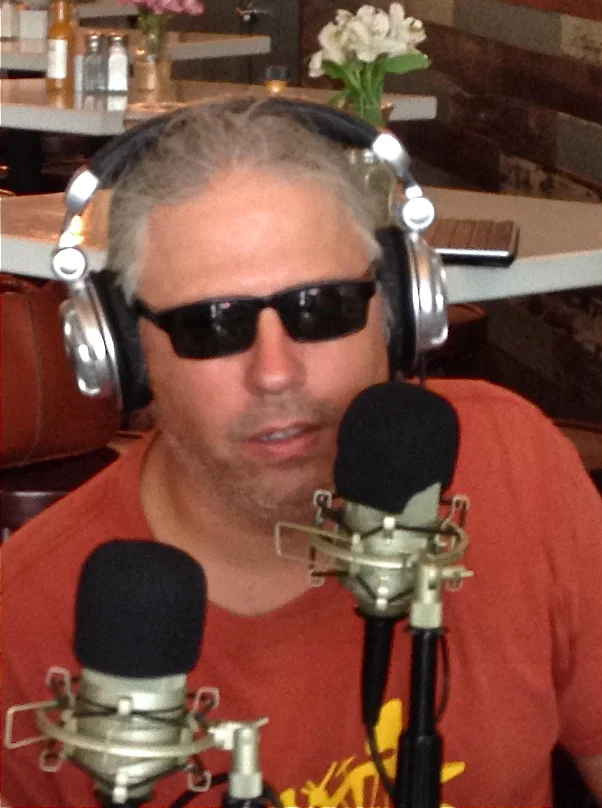Jeff Douville is an interesting and alive mind. I went to talk with him using the Egg Yolk Jubilee as a jumping off point. Egg Yolk showed up on my radar in the early 90's and they had a mad frantic style and were composed of some very expressive locals and, of course, featured Jeff playing electric guitar in a style not so commonly heard in the directions that they seemed to be headed. Then I found out about his fascinating film work with Paul Grass. He's also an owner of the Lost Love Lounge in the Marigny neighborhood in New Orleans.
He's very good at elucidating opinions and he is one of the folks I am interviewing that are really from New Orleans, not transplanted. There is an interesting long perspective about the city and the arts in it that seems to show up from that perspective.
The interview starts here...
Egg Yolk Jubilee; Lump, Mike Joseph, A.P. Gonzalez; collaboration with Paul Grass and the punk rock approach to Dixieland, the heavy brass genre; familial lineage to new orleans jazz greats; Frank Federico; Al Beletto connection; Glenn Barbaro- his midi Calliope and other wild side projects; steve callandra; mike hogan; cycling through drummers and periods of turmoil; Lou Thevenot; the world Egg Yolk showed up in; the increase in pop mentality in younger musicians; irreverential approach to music and reactions- subversive attitudes in early jazz; Danny Barker's storytelling
More on Danny Barker and his part in the resuscitation of brass band music; the "copy cat" phenomenon and striving for individualism; how he thought his way into his approach to guitar in egg yolk; performer/ audience relationship; proselytizing in music; the 10 foot semi circle of doom; difficulties of getting attention in the cell phone era; Dave Renson and Benny's Bar; losses in new Orleans R'n'B; playing with K-Doe, Howard Tate, Al "Carnival Time" Johnson; film background; how film school students are like basketball players; desire to be at the core of film projects; Paul Grass's film, Heavy Brass; the new film festival in town.
More on the new film festival; sound in film compared to plain music; post production blues; big budget films; problems learning film in school; being a tactician in the film business; paths to directing; whether there is or can be a New Orleans film style; the New York film style; Belizaire the Cajun; frustrations with the magical realist take on a New Orleans film; impact of film on Jeff's music; culture of not listening to rules in New Orleans; why Jeff loves Spike Lee; expressive film camera shots; American Splendor; creative approach in music and reaching greater maturity in that; Lou Thevenot's style; proselytization of ideas in music; breaking the rules- the 180 rule; how conventions come about in film; French New Wave films; time for people to let go of film; digital vs. analog in music and film; if video had pre-dated film...;
Part 4
This is part 4 which for years, it has just come to my intention was sitting in the part 3 slot, so the description was completely off. Here Geoffrey wraps things up with more on absurd viewpoints on film tech and obsolescence; neighborhood strangeness in New Orleans post-Katrina; other subjects.






